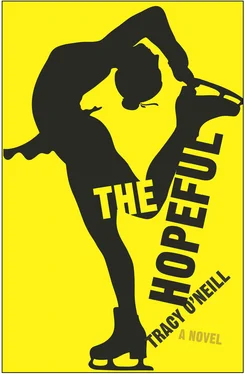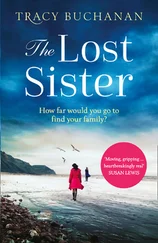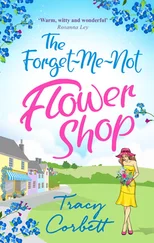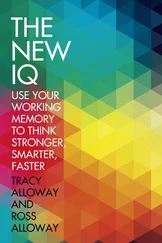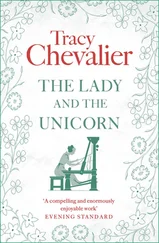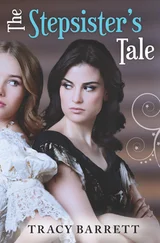Tracy O'Neill - The Hopeful
Здесь есть возможность читать онлайн «Tracy O'Neill - The Hopeful» весь текст электронной книги совершенно бесплатно (целиком полную версию без сокращений). В некоторых случаях можно слушать аудио, скачать через торрент в формате fb2 и присутствует краткое содержание. Год выпуска: 2015, Издательство: Ig Publishing, Жанр: Современная проза, на английском языке. Описание произведения, (предисловие) а так же отзывы посетителей доступны на портале библиотеки ЛибКат.
- Название:The Hopeful
- Автор:
- Издательство:Ig Publishing
- Жанр:
- Год:2015
- ISBN:нет данных
- Рейтинг книги:5 / 5. Голосов: 1
-
Избранное:Добавить в избранное
- Отзывы:
-
Ваша оценка:
- 100
- 1
- 2
- 3
- 4
- 5
The Hopeful: краткое содержание, описание и аннотация
Предлагаем к чтению аннотацию, описание, краткое содержание или предисловие (зависит от того, что написал сам автор книги «The Hopeful»). Если вы не нашли необходимую информацию о книге — напишите в комментариях, мы постараемся отыскать её.
The Hopeful — читать онлайн бесплатно полную книгу (весь текст) целиком
Ниже представлен текст книги, разбитый по страницам. Система сохранения места последней прочитанной страницы, позволяет с удобством читать онлайн бесплатно книгу «The Hopeful», без необходимости каждый раз заново искать на чём Вы остановились. Поставьте закладку, и сможете в любой момент перейти на страницу, на которой закончили чтение.
Интервал:
Закладка:
In this way, I thought, I should be thankful to my mother. If it weren’t for her infidelity, I might have done something irrevocable. Instead, I paid the price that seemed the least of a price, immorality, and even was able to arrange to purchase more from John. Now, I had enough pills to last me a good bit, and I was elated, looking into my Styrofoam coffee cup, brown stains remaining in the cracks where I’d already drank. The coffee had shaken a hysteria into my knee, a buzzy shot against the fuzz of a plain day. I wanted another. And then another. Enough had never been enough.
“Why study literature? Because it is often through examination of what is not real that we learn about what is. It is through learning what we don’t know that we know what we know. It is the scrutiny of symbols that clarifies the symbolized. All of this is to say that we at Harvard hope that every student’s experience here is his own bildungsroman, a coming of age, a challenging of youthful illusions. We hope that the Harvard education is a collaborative text authored through the cooperative efforts of our student body.
Thank you for your time. I sincerely hope that I see you all in class next fall — yes even the parents during Parents Weekend— and that you purchase my book in the bookstore The Meaningless Meaning of Meaningless . That’s a literary theory joke for the bibliophiles. There are beverages and cookies at the table on the way out. Good luck with your applications and good afternoon.”
The hall began to buzz with voices and moving chairs. I looked at my father. “My head feels like a pretzel.”
“Isn’t it wonderful?” my father said. “You could learn this much every day. You’re perfect for Harvard.”
“Doubtful,” I said. I wasn’t perfect for anything yet. But I would be.
That night after dinner, I went to my room and took another pill. I’d lost enough weight that I thought I could take a risk, so I decided to begin my plyometric work. Plyometrics were off-ice jumping exercises. The precision required was nothing compared to real jumps. After all, they weren’t performed on a fraction of an inch of steel on ice. Yet even plyometrics could result in injury if performed improperly, and this, I supposed, was one reason they had to be done: they were as close as I’d get to real skating while I prepared for my return.
I began slowly, jumping on one leg into the landing position, then moving to half rotations, then whole rotations, then one and a half rotations. At two rotations I fell, but it wasn’t bad, only a bruised knee. I tried again. There were many fails at first, but then more correctness. At around twenty, I tumbled, this time spilling into my bureau and knocking over a silver antique brush.
“What are you doing, Ali?” My mother was standing in the door. I stood up quickly.
“Minding my business,” I said.
“You shouldn’t be jumping. You’re going to hurt yourself. Don’t you remember what the doctor said? You’re lucky you can taste. You barely escaped paralysis.”
“You shouldn’t be telling me what to do. You’re going to hurt yourself. Aren’t you still sick? Or shall we talk about what you’ve been doing with your healthy body?” She turned away, and I went back to what would never fail me, the fidelity of dreams.
On the telephone, Dorothy said she never went above fourteenth, but she loved that the entire world was collapsed into the clarity of the numbered street axes. Wherever you were, you were everywhere, and you knew where that was. One two three, uptown, downtown, precinct nine, precinct four. New York, she believed, was the only city.
“What about Boston?” I asked.
“Sad little college town,” she answered.
Dorothy decided our plan should be to be spontaneous. We could eat whatever we felt like, and this was much of what she thought constituted being a New Yorker. New York was a city of possibilities, a place where if you believed you are what you eat, you could be anything. She knew of a restaurant where the burritos were like duffel bags, a bistro where the angel hair went on for days. There was a movie theater where you could order fish and chips, a playhouse with thousand dollar wines. On the floor below her apartment was a shop with a foie gras buffet.
“Fish balls?” she asked.
“Never had them,” I said.
“Revelatory,” she said. “Chile rellenos?”
“Never had it.”
“You haven’t lived,” she said. “Fiddlehead salad?”
On the food questions went. Soba noodles? Udon noodles? Rice noodles? Ramen? Shawarma? Cuban? Cantonese?
How about Argentine?
Shishito? Jamaican Scotch bonnet? Pork belly? Espresso affogato? Not once? Are you sure, Ali? Never? Never never?
Around panna cotta she stopped. “I would never speak badly of the Doyles,” she said. “Except what have those people been feeding you?”
Perfection was her reason for rudeness, Dorothy explained. If you weren’t removed enough to be a pathologist, you couldn’t achieve excellence, and excellence was what she demanded from everyone beneath her. In the kitchen, a turning arugula leaf was a health code violation. A minute extra was a sent-back Kobe steak. At a restaurant, well done could be a disaster.
“We all have to do it,” she said. “So why not do it beautifully? That’s what I love about cooking. You get the chance to take the most requisite, ordinary activity and make it something extraordinary. We don’t get to choose the need to eat. But there are people who take our opportunity to make the everyday wonderful and eat peanut butter and jelly instead.” She told me how she’d elaborated food. She’d whipped celery root foam to top ribbons of prosciutto, formed pyramid gelatins prepared from bitter melon rinds. She folded phyllo dough origami and with cactusfruit glazes lacquered tenderloins. Dorothy believed every meal should begin like a love story with something small and favorable, an amuse-bouche , and one of her great regrets was that she’d never gotten to eat at the famed elBulli, a money pit restaurant in Spain, where radical cuisine was served in a tiny, gorgeous procession of dozens of courses. The point there had never been fullness, but pushing the echelon of food. Quality not quantity. As she spoke, I hugged my knees to my chest. I liked that we knew the same truths, that the edge between perfection and everything else is smaller even than the eye can see. I had a cause, and she was Dorothy. And I suppose that’s why I asked her what she felt those days when I was only a hypothetical.
“I knew you were such a blessing the week I found out I was pregnant. I really needed to quit cigarettes,” she said.
My birth father loved seafood and machines, she explained. At work he wore a one-piece jumper like a big, filthy baby, but he was an excellent dance lead. There were notes in his gestures, measures, treble clefs. The dignity of his movements suggested to her that one day he’d outgrow careers that left his hands hard, his nails dirty.
“Did he smell like his job?” I asked.
“He reeked,” she said.
They broke up when she tired of him not wanting what she wanted him to want. There was only one place she wanted to go to be a chef, and he was afraid he’d be useless in a city veined with public transportation. “He was an old dog,” Dorothy said, “when it came to new tricks.” They parted at a stalemate, and she moved to New York City, where she got a job chopping garlic and onions in a gourmet kitchen, mostly because the boss thought she was Mexican. The first two blank calendar pages she accredited to stress. When she flipped to the third, a photograph of vibrant red Puttanesca, she learned it would be me with a pregnancy test.
“A pack and a half a day!” she said. “Can you imagine the terrible tastes I was sensing? My buds were burnt to havoc!”
Читать дальшеИнтервал:
Закладка:
Похожие книги на «The Hopeful»
Представляем Вашему вниманию похожие книги на «The Hopeful» списком для выбора. Мы отобрали схожую по названию и смыслу литературу в надежде предоставить читателям больше вариантов отыскать новые, интересные, ещё непрочитанные произведения.
Обсуждение, отзывы о книге «The Hopeful» и просто собственные мнения читателей. Оставьте ваши комментарии, напишите, что Вы думаете о произведении, его смысле или главных героях. Укажите что конкретно понравилось, а что нет, и почему Вы так считаете.
